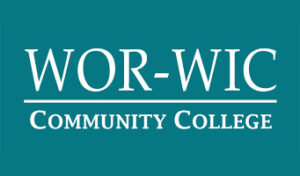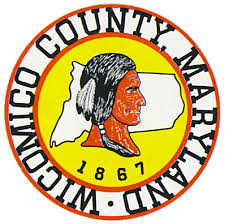
Wor-Wic Community College recently joined the Aspen Institute College Excellence Program and the Maryland Higher Education Commission (MHEC) Maryland Transfer Intensive, a statewide collaboration designed to significantly improve community college transfer outcomes. Over the next seven years, 25 public and state-aided institutions, including Wor-Wic, will coordinate efforts to boost attainment for those seeking bachelor’s degrees, expand equitable opportunities for Marylanders and build on Maryland’s ranking as the second most educated state in the country.
Transferring from a local community college to a four-year institution offers an affordable pathway that is good for Marylanders, their families and employers looking to fill key positions. It is also a good investment for the state: 88% of community college students stay in the state after college, working and contributing to the Maryland economy.
“Joining the Maryland Transfer Intensive reflects Wor-Wic’s commitment to supporting local students in achieving their academic goals, strengthening Maryland’s workforce and supporting the state’s commitment to higher education,” said Deborah Casey, Ph.D., president of Wor-Wic. “We look forward to seeing our graduates prepared to transfer to a four-year institution after completing an associate degree, fulfilling their higher education and career goals.”
Wor-Wic has long worked with state universities to provide transfer options, including agreements with Salisbury University for chemical dependency counseling, forensic science, criminal justice and STEM data science. There are also transfer paths for Wor-Wic students to enter the A. James Clark School of Engineering or the School of Nursing at the University of Maryland College Park. A previous Transfer Intensive partnership with University of Maryland Eastern Shore (UMES) helped bring Wor-Wic transfer students special scholarships, as well as access to programs specially designed for UMES majors. Wor-Wic recently instituted a pharmacy pre-transfer process to help students interested in pursuing the UMES doctor of pharmacy degree.
“Maryland is proud to be one of the nation’s leading states when it comes to higher education attainment, and this transfer initiative solidifies our commitment to becoming number one,” said Dr. Sanjay Rai, secretary of the Maryland Higher Education Commission. “By bringing together 25 institutions with a shared focus on transfer student success, we are strengthening our workforce, meeting employer talent needs and empowering thousands of Marylanders to reach their full potential.”
Although 55% of Maryland community college students are in transfer programs, only 23% of them transfer to a Maryland four-year institution within six years. Fewer than half of those students complete a bachelor’s degree within three years of transferring. The Maryland Transfer Intensive seeks to improve these outcomes through proven practices: aligning leadership at the highest levels, investing in data-driven reforms and strengthening institutional partnerships.
The project has three elements: engaging presidents by activating a statewide Presidential Steering Committee on Transfer Student Success, recommending how to improve data reporting and policies related to transfer and supporting college leaders and teams in improving transfer practices. Participating institutions will engage in a yearlong Transfer Intensive process, learning about evidence-based practices and applying them to develop their own reforms to improve transfer student outcomes at scale.
“The Maryland Transfer Intensive reflects a remarkable commitment from presidents, faculty, staff and policymakers to pursue a really important goal: building clear, high-quality pathways and advising structures that dramatically increase bachelor’s degree attainment for community college students,” said Josh Wyner, executive director of the College Excellence Program at the Aspen Institute. “I fully expect that, through this work, Maryland will show a path for other states aiming to achieve similar goals.”
Falecia D. Williams, president of Prince George’s Community College and co-chair of the Presidential Steering Committee on Transfer Student Success, noted, “Community college students in Maryland have tremendous potential. By uniting under one statewide strategy, we will ensure that students from diverse backgrounds and experiences have the support they need to thrive at the four-year level and earn the degrees that allow them to stay and work in good jobs right here in Maryland.”
“At Towson University, we see firsthand the transformative power of community college transfer,” said Mark Ginsberg, president of Towson University and co-chair of the Presidential Steering Committee. “We’re excited to join this innovative effort to create a smoother, more supportive transfer experience for students across Maryland that meets today’s workforce needs while also preparing our state’s workforce of the future.”
Over the next four years, the Maryland Transfer Intensive will evaluate its impact on transfer enrollment, bachelor’s completion and other success metrics, with the goal of establishing a blueprint for other states eager to adopt similar reforms. With support from the Michael & Susan Dell Foundation, the partnership underscores Maryland’s commitment to delivering on its promise of educational excellence and social mobility for all.
Visit https://highered.aspeninstitute.org/programs/state-system-engagement for more information on the Maryland Transfer Intensive and how Wor-Wic is contributing to this statewide initiative.



